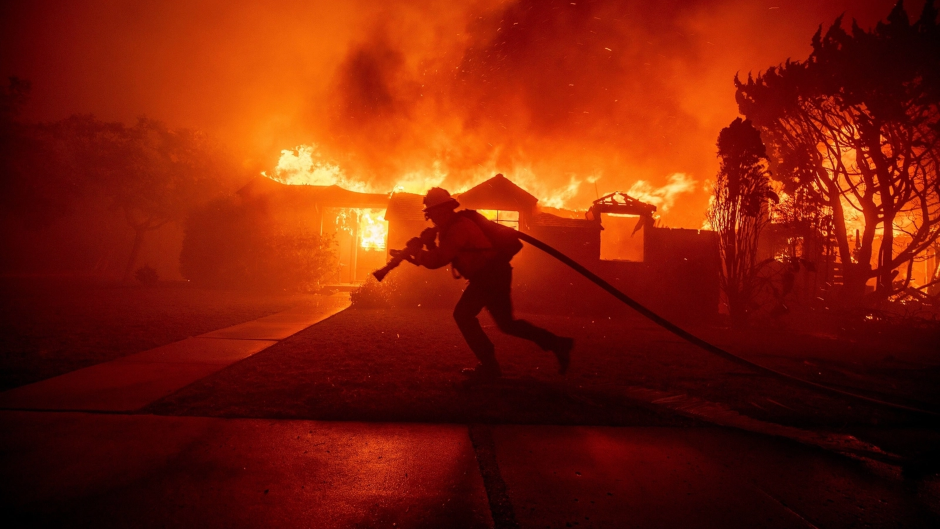
US, Jan 11.- NASA released on Friday a new global temperature record that occurred during 2024, which although it cannot be directly linked to the deadly California fires, the huge snowfalls or the hurricanes of last year in the US, does make these types of events more “prone” and “intense”, as Carlos del Castillo, a scientist at that agency, explained to EFE.
“When we have an effect in which we are increasing the temperature, one way of looking at it is that there is much more energy in the system, there is much more energy in the atmosphere, much more energy in the oceans and the result of that is that (...) we are going to have a greater number of extreme events,” stressed Castillo, head of the Ocean Ecology Laboratory at NASA's Goddard Space Flight Center.
There will be more “hurricanes, fires, droughts and not only more, but of greater intensity,” he explained.
For the expert, although it cannot be said that these fires - which have left at least a dozen dead and thousands of structures damaged - have been caused by global warming, it is causing greater and longer droughts, greater heat waves, and the vegetation is drier, and more prone to catch fire.
“There is more fuel available so that the fire can remain with greater intensity,” said the expert, who recalled that California has suffered a great drought in recent years.
“It is easier for it to have fire and for the fires to be much more intense,” he emphasized.
He explained that last year it was 2.30 degrees Fahrenheit (1.28 degrees Celsius) warmer than the average that NASA uses as a base, which is between 1951 and 1980.
However, he said that the important thing is not that one year is warmer than another, but "the trend." And the last ten years have been the warmest since NASA began to take temperature records on the planet in a consistent way.
“Obviously, the underlying problem is that we continue to emit” greenhouse gases due to fossil fuels, the Puerto Rican scientist added.
The complexity of hurricanes
Del Castillo also pointed out that hurricanes are extremely complicated systems.
“There are many factors that contribute to the formation of hurricanes and their intensification, but if the atmosphere is extremely hot and if the oceans are extremely hot, there is more energy for hurricanes to form and to intensify,” he explained.
Del Castillo also recalled the “extremely damaging” amount of rain deposited last year in the southeastern United States by hurricanes such as Milton and Helene.
In this regard, he explained that “global warming increases the atmosphere’s capacity to retain water, to increase humidity in the atmosphere, and contributes to hurricanes being able to deposit much more rain when they move on land.”
Another impact, particularly in the Gulf of Mexico - where many of the Atlantic basin hurricanes form - is that sea levels have been rising as a result of global warming.
“Glaciers and ice sheets that exist on the continents are melting and this contributes to rising sea levels,” he said.
He also added that when water warms, it expands. “When we combine these two factors, what we have is that in the Gulf of Mexico the sea level has risen about 8 inches (about 20 centimeters) since 1950,” he said.
On the other hand, the NASA scientist also said that although it seems illogical, higher temperatures can make snowfall more likely.
“When the atmosphere is warm, it can retain much more water and this atmosphere that is full of water meets a cold front, so it falls,” he explained.
The US federal agency indicated on Friday that the temperature of the Earth's surface last year was the warmest on record.
The new benchmark comes after 15 consecutive months (June 2023 to August 2024) of monthly temperature records, an unprecedented streak of heat.
“Between record temperatures and the wildfires currently threatening our facilities and workforce in California, it has never been more important to understand our changing planet,” said NASA Administrator Bill Nelson. (Text and Photo: Cubadebate)